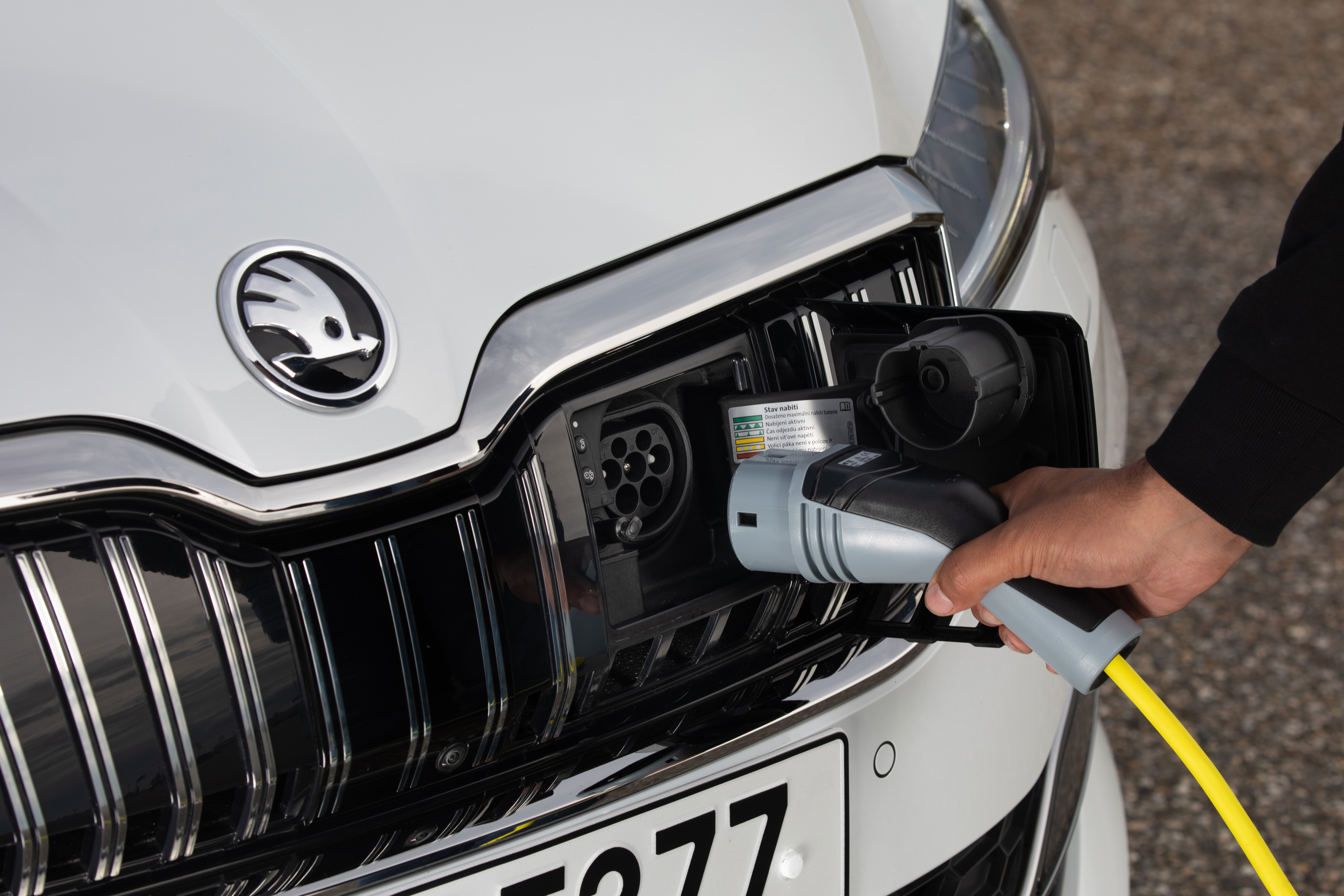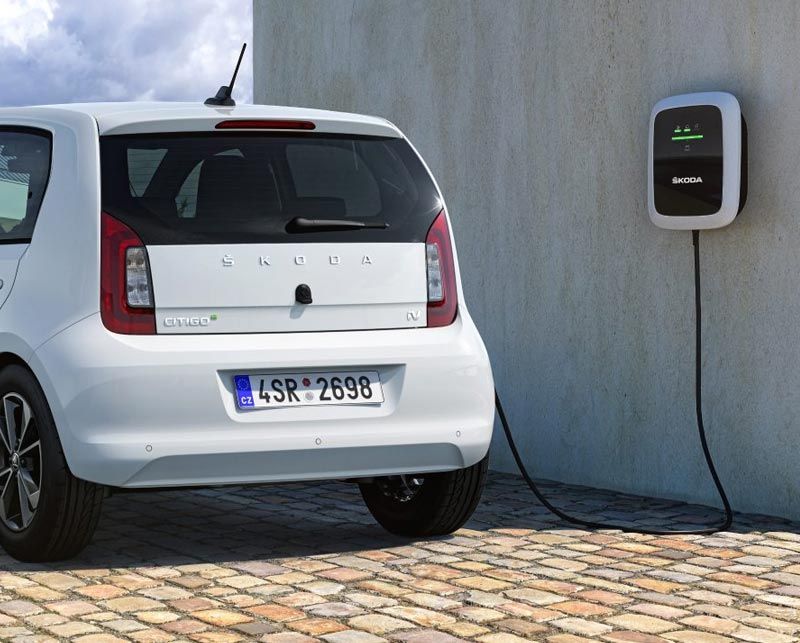Electric Vehicle Questions and Answers
Batteries, chargers, AC or DC, recuperation - the world of electric vehicles is broad, fascinating, yet a bit unknown to many of us. ŠKODA Storyboard took a look into what interests you the most and come up with answers to the most frequent questions about charging and batteries.
What are the advantages of lithium-ion battery?
Compared to other batteries, the lithium-ion battery has a high energy density, good performance and safety characteristics (fast acceleration) with a minimal memory effect, a long service life and reasonable marketable costs, which can be further reduced in the next few years. Thus, the lithium-ion battery meets all Volkswagen Group criteria in terms of everyday suitability, service life and safety criteria.
How does the weight of the battery affect the driving characteristics?
The battery is installed in the vehicle floor centrally between the axles. This results in a low center of gravity with optimal weight distribution on the front and rear axles. The result? Very good driving characteristics with sporty road handling and cornering.
Does the battery get damaged if charged every day or charged for too long?
No, daily charging is no problem. Charging will be completed automatically when the battery is charged.
 The electric car's charging system gets rid of when the battery is charged.
The electric car's charging system gets rid of when the battery is charged.
Do I always have to charge the battery to 100 per cent?
No, this is not necessary. The battery has only a minimal memory effect throughout its entire lifespan, so this is not noticeable in a non-complete charge.
How long can the vehicle be parked without the battery discharging when there is no charging opportunity nearby?
It depends on the outside temperature and the battery's condition when parking. When it is full and the outside temperature is low, the car may be idle for a few months.
What happens when the car is struck by lightning?
The car behaves like a conventional car. The high-voltage battery is waterproof.
What happens when the car is driving through deep water?
The car behaves like a conventional car. The high-voltage battery is sealed against water intrusion.
 ŠKODA CITIGOe iV - the first mass-produced ŠKODA electric model. Li-ion batteries are under the floor of the car and the space under the rear seats.
ŠKODA CITIGOe iV - the first mass-produced ŠKODA electric model. Li-ion batteries are under the floor of the car and the space under the rear seats.
Can the battery be damaged by magnetic objects, mobile devices or high voltage power lines in the car, or does it reduce its performance?
Since the battery is electromagnetically shielded, these items have no negative impact on the battery.
How long does the battery last?
The life of the battery will be the “car life”. We expect 8 years after which the battery is still at 70 per cent of its capacity.
 If the battery of ŠKODA SUPERB iV is flat, it can be fully charged in about three and a half hours
If the battery of ŠKODA SUPERB iV is flat, it can be fully charged in about three and a half hours
using the box with a charging output of 3.6 kW.
Is it dangerous if the charging cable gets wet, the vehicle is in a puddle or it is raining?
No. The charging cycle of e-vehicles is completely safe. There is no danger to people at any time.
What happens if I forget to unplug the plug from the charging station and start driving?
The engine can only be started when the charging cable is removed.
Does anyone need to remove the plug immediately after charging when the battery is charged?
No, the charger in the vehicle switches itself off at the end of the charging cycle.
Can I stop charging even if the battery is not fully charged yet? Is that harmful to the battery?
Yes, you can interrupt the charging cycle, the battery will not be damaged. Charging is interrupted when you unlock the vehicle. Optionally, you can stop the charging cycle via the We connect app with e-Remote.







